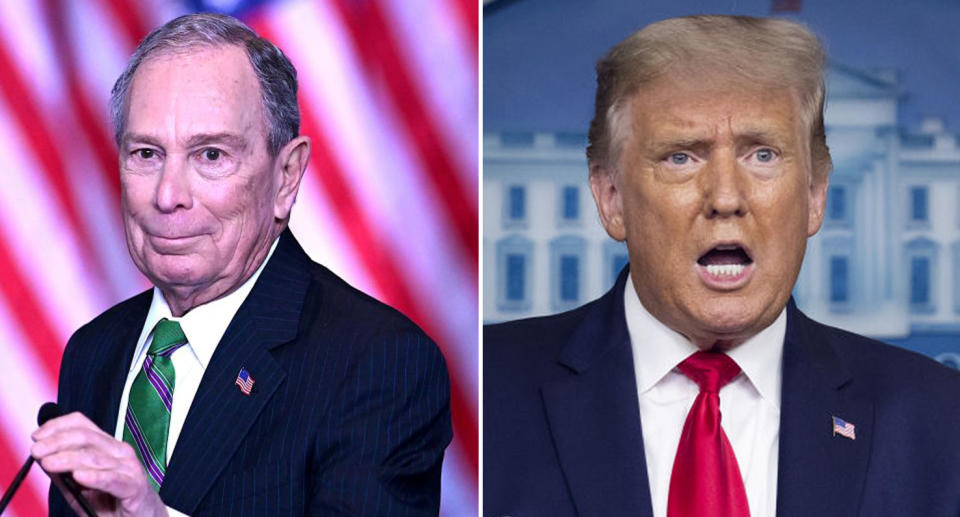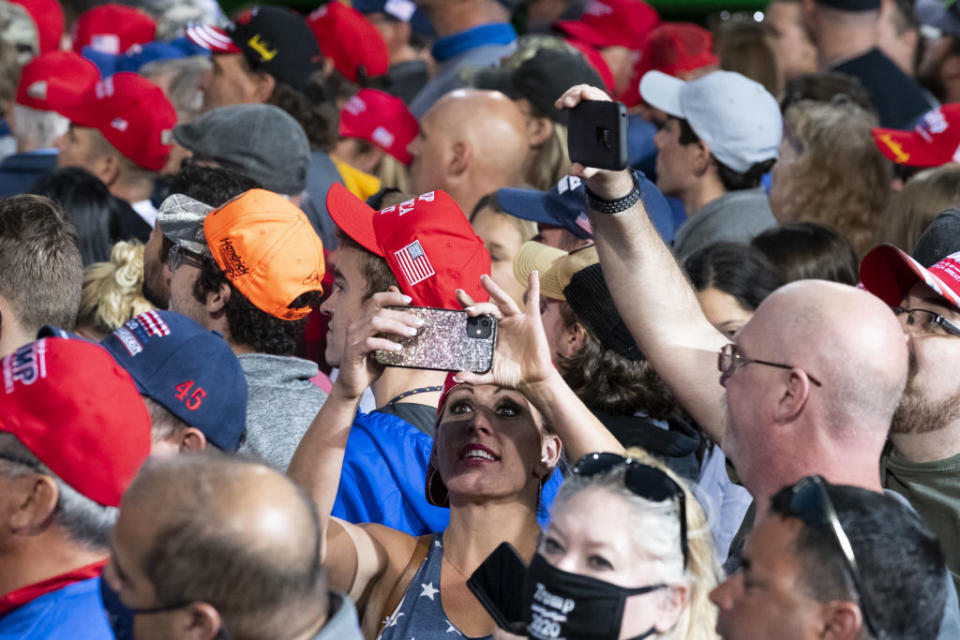Billionaire's 'stunning' gesture could lose the election for Trump
No good deed goes unpunished, as the old idiom goes. And that seems particularly true in the United States of America.
Billionaire former New York mayor Michael Bloomberg this week pledged to pay off the debts of formerly convicted criminals in Florida, to allow them to be eligible under state law to vote in the upcoming US presidential election.
In a somewhat ironic outcome, he now faces potential criminal charges himself.
The battle, and its outcome, could prove decisive in the upcoming presidential election with polls showing a dead heat between Donald Trump and Joe Biden in the important swing state of Florida.
If Mr Biden is able to win its 29 electoral college votes from the US president, it would make Mr Trump’s road to reelection very difficult.

Florida Governor and Trump ally Ron DeSantis knows it. After the law was recently changed to allow convicted felons the chance to vote, Mr DeSantis won a court victory to keep them from voting until they’ve paid off fines, restitution and court fees.
In turn, Mr Bloomberg, who dropped out of the Democratic presidential race last year, helped raise more than $US16 million to help them pay off their debts, with the help of non-partisan group the Florida Rights Restoration Coalition.
“The right to vote is fundamental to our democracy and no American should be denied that right. Working together with the Florida Rights Restoration Coalition, we are determined to end disenfranchisement and the discrimination that has always driven it,” Mr Bloomberg said in a written statement.
On Wednesday (local time), Florida’s attorney general asked state and federal law enforcement to investigate the billionaire for possible election law violations. Attorney General Ashley Moody is reportedly questioning whether the donation violates laws that prohibit giving people incentives to vote.
“I have instructed the Statewide Prosecutor to work with law enforcement and any Statewide Grand Jury that the Governor may call,” she said in a written statement.
The money Mr Bloomberg raised is targeted for felons who registered to vote while the law was in question and who owe $1,500 or less. According to his staff, that accounts for about 31,100 people.
In a state that decided the infamous Bush v Gore 2000 presidential election by just 537 votes, these voters could make a crucial difference in the overall outcome of the election.
In the race to 270 in the electoral college system, swing states (seen below in brown) will make all the difference.

While many praised Mr Bloomberg’s slated donation, critics have argued those who receive the debt payment would be more inclined to vote for the Democratic candidate, with some on the right calling it a “stunning” attempt at election interference.
Matthew Segal from the American Civil Liberties Union said the criticism showed the true purpose of the legal fight, in a state known for disenfranchisement efforts of voters.
“If you say people can't vote until their debts are paid and then object to their debts being paid, you confirm that your true purpose was to prevent voting rather than to collect debt,” he wrote on Twitter this morning.
In 2018, voters approved a constitutional amendment to restore most felons’ voting rights once they’ve completed their sentences. The exception was for murderers and sex offenders. Republican lawmakers then moved to define what it means to complete a sentence.
In addition to prison time served, lawmakers directed that all legal financial obligations, including unpaid fines and restitution, would also have to be settled before a felon could be eligible to vote.

Trump may seek to ‘bypass’ election result
President Donald Trump on Wednesday (local time) again declined to commit to a peaceful transfer of power if he loses the November 3 poll.
“We’re going to have to see what happens,” he said at a news conference, responding to a question about whether he’d commit to a peaceful transfer of power.
“You know that I’ve been complaining very strongly about the ballots, and the ballots are a disaster.”
It is highly unusual that a sitting president would express less than complete confidence in the American democracy’s electoral process. But he also declined four years ago to commit to honouring the election results.
It comes as an explosive report in The Atlantic claimed the Trump campaign has been discussing “contingency plans to bypass the election results and appoint local electors in battleground states where Republicans hold the legislative majority.”
The article detailed the Republicans efforts at voter suppression heading into the election, particularly among black voters and the chaos that could come with a defiant president unwilling to vacate the White House.
with AP
Do you have a story tip? Email: newsroomau@yahoonews.com.
You can also follow us on Facebook, Instagram and Twitter and download the Yahoo News app from the App Store or Google Play.




